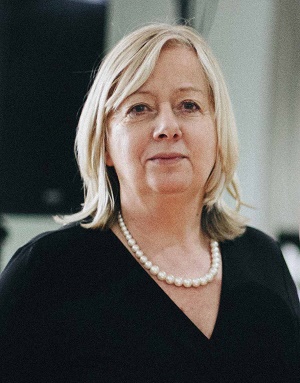AI in Social Care
With the rapid rise of AI, how is this technology likely to affect the social care sector across the UK?
The rise of AI in social care
Before the start of the year, many of us would never have given Artificial Intelligence a second thought; there was always a threat via Hollywood blockbusters that technology would be out to get us, but it had never seemed so certain until ChatGPT launched in November 2022 and showed us that AI had the ability to take over the world, or at least was powerful enough to get the whole world talking.
Before ChatGPT, most people were not aware of how AI technology could not only assist, but also affect our daily lives, so where has this supposedly sudden technology come from?
What is AI for social care?
Whilst there isn’t a universally agreed definition, AI typically refers to systems that can perform tasks that would ordinarily require some form of human intelligence. The growth in usage over the past few decades has meant that the AI that was first introduced in 1956 now seems a far distant memory and has evolved alongside our ability to carry on creating further breakthroughs such as finding the Higgs Boson particle and landing on the moon’s south pole.
Whilst many corporate sectors are finding AI beneficial, especially when it comes to monotonous, repetitive tasks such as data entry, email responses, software testing and invoice generation, how is this technology likely to affect the social care sector across the UK?
AI usage in social care
According to Unique IQ, there are many benefits of using AI within the social care sector but there are also many downfalls to these benefits. For example, whilst AI assisting in a diagnosis of health conditions could be helpful, there is also a possibility that this technology that we have not yet been able to succinctly test, may provide our most vulnerable people with an incorrect diagnosis, in turn automating incorrect medication, creating errors and liability claims.
Another benefit identified is the assistance in identifying healthcare patterns across local areas, but as many of us are aware, our medical records are highly sensitive and confidential, so how will AI use this information when providing healthcare professions with patient patterns around the local area?
The ethical uncertainty of AI in social care
In the UK, under GDPR, use of personal data is subject to several laws and codes of practice and there must be a lawful reason for using an individual’s data, but in order to assist AI systems to develop, there is a question mark over the privacy of patients and residents. Should a care home hold sensitive data regarding their residents, but also hold an AI system that they use to determine illnesses, symptoms, pain levels and local health patterns, where does permission and privacy end and research begin?
AI could also have the potential to be able to learn more and more about residents via systems that they operate and in turn, know more about them than may have been agreed or understood. Should your care home be subject to a cyberattack, your AI storage could be hacked, and all this confidential information could get into the hands of people who will use it for no good, costing you not only a substantial loss of earnings, but also loss of confidence and trust.
Using social care AI for diagnoses and recommending treatment
Can we trust AI for social care diagnosing illnesses and recommending treatment? There are ethical issues at play when we look into the growing practice of AI being able to identify patient diagnosis and suggested treatments.
As with medical professionals, AI may be able to give these diagnoses, but they do not have the ability to explain how the decision was reached, as it has based it on a learnt algorithm, which can include gender and race bias, rather than long term knowledge and ruling out other potential causes.
According to the NHS⁴, the final decision about the care that people receive should be made in consultation with the patient or service user, using your professional judgement. If you have any doubts when it comes to working with AI and either diagnosing or recommending treatments, they should refer to your broker, who will be able to give you guidance around this topic and how you should move forward.
AI for your social care business
We are still very much in the early stages of AI becoming part of our everyday lives, but it is becoming a term that we are more and more familiar with. We don’t yet fully know the capabilities that this technology may have, but for now it’s worth remembering that at the moment, it is just a fad.
However, with more roll outs looking likely across the NHS and the Care Quality Commission putting more research into how this technology would work, identifying and considering how to update their methods to help regulate services better, it’s something that may soon begin to appear on your horizon.
Care home insurance from Towergate
We can offer care home cover - find more information on our care home insurance page.
You can request a care home insurance quote online, call us on 01438 739280 or request a callback at newcare@towergate.co.uk.
Care and medical insurance from Towergate
We can offer a range of care and medical cover. See our care and medical insurance page for more information.
About the author
 Carolyn Baker-Mellor is a respected industry leader with over 35 years' experience within the care insurance sector. She works across a wide spectrum of insurance product and policy development, delivery and optimisation for care industry clients, including managing global corporate accounts, working closely with trade associations, and helping clients in protecting their businesses and personal assets. Her areas of expertise within the sector include care homes, nurseries, domiciliary care, hospices and charities.
Carolyn Baker-Mellor is a respected industry leader with over 35 years' experience within the care insurance sector. She works across a wide spectrum of insurance product and policy development, delivery and optimisation for care industry clients, including managing global corporate accounts, working closely with trade associations, and helping clients in protecting their businesses and personal assets. Her areas of expertise within the sector include care homes, nurseries, domiciliary care, hospices and charities.
Carolyn currently works at Towergate as Head of Care Insurance. Towergate is the UK’s leading independent insurance broking platform and forms part of the Ardonagh Group, an international network of over 100 offices and 7,000 people which incorporates leading brands in both Lloyd’s of London and global markets.
She previously worked for 10 years at Aon as a director, client services leader and assistant director for claims.
This is a marketing article by Towergate Insurance. Towergate Insurance are not giving advice on Artificial Intelligence I and this content has been researched and sourced from publicly available information.
Date: October 30, 2023
Category: Care and Medical










